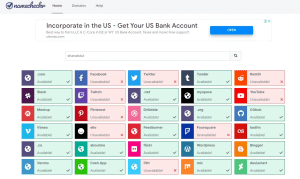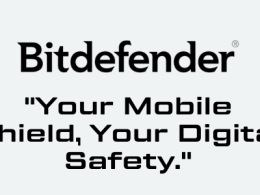Introduction: Things to Do Before Starting a New Blog
If you’ve ever considered starting a blog, you’re not alone. Blogging offers a versatile platform for personal expression, sharing expertise, or even launching a business. However, before you dive headfirst into the blogosphere, there are several essential steps you should take to set yourself up for success. Here are eight crucial things to do before starting a new blog:
1. Setting Clear Blogging Goals
Before you create your first blog post, take a moment to clarify your blogging objectives. Your motivation for starting a blog can vary widely, from personal expression to professional endeavors. To begin, list down your reasons for embarking on this journey. These goals will serve as your guiding light throughout your blogging adventure.
Understand Your Motivation: Reflect on why you want to start a blog. Is it to share your passion for a particular subject, build an online presence for your business, or generate income? Understanding your underlying motivation will help you stay committed and focused.
List Your Objectives: Once you’ve identified your motivation, jot down specific objectives you wish to achieve through your blog. These could include monetary gain, improving your writing skills, building a recognizable brand, expanding your network, or simply documenting your life’s experiences.

Focus Your Efforts: Having clear goals will enable you to direct your efforts efficiently. It’s easy to get sidetracked in the world of blogging, but a well-defined set of objectives will help you stay on course and measure your progress.
2. Defining Your Blog’s Niche
While some blogs cover a broad spectrum of topics, many successful blogs thrive within specific niches. A niche is the subject or theme your blog will revolve around. Defining your niche is critical, as it can impact your blog’s discoverability and audience engagement.
The Importance of Niche Selection: Choosing the right niche is crucial for attracting a dedicated readership and ranking well in search engines. While a broad topic might seem appealing, it can be challenging to stand out in a crowded field. Narrowing your focus allows you to become an authority in your chosen niche.
Aligning Your Interests and Expertise: Consider your educational background, expertise, and hobbies when selecting a niche. Identify areas where you have knowledge or skills. Passion for your chosen subject is essential, as it will fuel your motivation to create quality content consistently.
Ensuring Long-Term Passion: Blogging is a long-term commitment, so it’s vital to choose a niche that genuinely interests you. If you pick a topic solely for its perceived popularity, you may lose enthusiasm over time. Your passion for the subject will shine through in your writing and engage your audience.
3. Analyzing Your Competition
Understanding your competition is a crucial aspect of blogging. Analyzing what others are doing in your niche can provide valuable insights and help you carve out a unique space for your blog.
Researching Potential Topics: Start by researching the topics you intend to cover in your blog. Use popular search engines like Google to identify top-ranking pages related to your chosen subjects. Analyze the content on these pages to gauge the depth of coverage.
Evaluating Ranking Difficulty: Assess the competition for specific keywords or topics. If the top-ranking pages already provide comprehensive information, it may be challenging to compete unless you have a strong grasp of search engine optimization (SEO). Focus on topics where you can add unique value or cover aspects that others have missed.
Identifying Unique Content Opportunities: Look for gaps in existing content within your niche. Are there questions or subtopics that haven’t been adequately addressed? Identifying these opportunities allows you to create original and valuable content that can set your blog apart.
4. Selecting the Right Hosting Platform
Your blog needs a reliable hosting platform to ensure it’s accessible to your audience. Think of web hosting as the space where your website resides, making it crucial to choose the right provider.
The Role of Web Hosting: Web hosting is like renting a room for your website on the internet. Your hosting provider stores your website’s files and makes them accessible to users worldwide. Opting for a reputable hosting service is essential for ensuring your blog’s availability and performance.
Budget-Friendly Hosting Options: Consider your budget when selecting a hosting platform. Many providers offer affordable hosting plans suitable for new bloggers. While free hosting services exist, they often come with limitations and lack the reliability and support of paid options.
The Importance of Reliable Hosting: Reliability is paramount in web hosting. Your chosen hosting provider should offer features like uptime guarantees, excellent customer support, and scalability to accommodate your blog’s growth. A reliable hosting platform ensures your blog remains accessible to your readers.
5. Choosing a Memorable Domain Name
Your blog’s domain name is its online address, making it a crucial element of your brand identity. Selecting the right domain name requires careful consideration.
The Significance of Domain Names: A domain name is the web address people will use to access your blog. It’s a vital part of your online identity and plays a role in your blog’s branding and discoverability.
Brainstorming Domain Ideas: Brainstorm domain name ideas that align with your blog’s niche and goals. Choose a name that is easy to remember, relevant to your content, and reflective of your brand. Consider using domain name search tools to generate ideas and check domain name availability.
Registering Your Domain: Once you’ve settled on a domain name, register it with a reputable domain registrar. Ensure that the domain name you choose is unique and not already in use by another website. Additionally, check the availability of social media handles to maintain brand consistency across platforms.
6. Checking Social Media Handle Availability
Consistency in branding is crucial for building a recognizable online presence. Before finalizing your blog’s name and domain, check the availability of matching social media handles.
The Connection Between Domain and Social Media: Your blog’s domain name and social media handles should ideally align. Consistent branding across your blog and social media platforms makes it easier for readers to find and connect with you.
Verifying Social Media Handle Availability: Use online tools like namecheckr to check the availability of social media handles that match your domain name. If your chosen handles are already in use on popular social platforms, consider adjusting your domain or handle to ensure uniformity.

Ensuring Brand Consistency: Maintaining consistent branding across your blog, website, and social media profiles enhances your brand’s visibility and makes it more memorable for your audience.
7. Planning Your Monetization Strategy
Decide on your monetization strategy early in your blogging journey. Whether you aim to generate income through affiliate marketing, product sales, services, or advertising, having a plan in place will help you achieve your financial goals.
Diverse Monetization Options: Blogging offers various monetization avenues, including affiliate marketing, lead generation, product sales, services, courses, consultations, and advertising. Choose the monetization methods that align with your niche and audience.
Setting Financial Goals: Establish clear financial goals for your blog. Determine how much income you aim to generate and the timeline for achieving these goals. Your monetization strategy should complement your content strategy.
Aligning Content with Monetization: As you create blog content, consider how it aligns with your chosen monetization strategy. Your content should provide value to your audience while offering opportunities for monetization. Striking the right balance ensures a mutually beneficial relationship between your blog and your readers.
8. Gaining Basic SEO Knowledge
Search engine optimization (SEO) plays a vital role in increasing your blog’s visibility on search engines like Google. While you can enlist the help of an SEO expert, it’s valuable to have a fundamental understanding of SEO principles.
The Role of SEO in Blogging: SEO involves optimizing your blog’s content and structure to improve its ranking in search engine results. Learning SEO basics allows you to track search engine rankings, analyze your blog’s performance, and make informed content decisions.
Free SEO Learning Resources: To acquire basic SEO knowledge, consider enrolling in free SEO courses offered by platforms like Yoast, LinkedIn Learning, and Udemy. Additionally, reputable SEO blogs such as Backlinko, Search Engine Journal, and Ahrefs provide valuable resources for learning SEO from scratch.
Empowering Your Blog with SEO: With a foundational understanding of SEO, you can enhance your blog’s visibility and reach a broader audience. SEO knowledge also proves beneficial in earlier steps, such as niche research and competition analysis.
| Step | Description |
|---|---|
| 1. Setting Clear Blogging Goals | Define your motivation, list objectives, and focus efforts. |
| 2. Defining Your Blog’s Niche | Select a niche that aligns with your expertise and passion. |
| 3. Analyzing Your Competition | Research topics, evaluate ranking difficulty, and find unique content opportunities. |
| 4. Selecting the Right Hosting | Choose reliable web hosting within your budget. |
| 5. Choosing a Memorable Domain Name | Brainstorm domain ideas, register a unique domain, and check social media handle availability. |
| 6. Checking Social Media Handles | Ensure consistency in branding by verifying social media handle availability. |
| 7. Planning Your Monetization Strategy | Decide on monetization methods, set financial goals, and align content with monetization. |
| 8. Gaining Basic SEO Knowledge | Learn SEO principles through free resources and empower your blog with SEO. |
This table provides a quick overview of the essential steps to take before starting a new blog.
Conclusion
Starting a blog is an exciting endeavor that can lead to personal fulfillment and professional growth. By following these eight essential steps—setting clear goals, defining your niche, analyzing your competition, selecting the right hosting platform, choosing a memorable domain name, checking social media handle availability, planning your monetization strategy, and gaining basic SEO knowledge—you’ll embark on your blogging journey with confidence and clarity.
Remember, blogging is a long-term commitment, and your passion and dedication will be the driving forces behind your success. Take the time to prepare thoroughly, and you’ll be well-equipped to create a blog that resonates with your audience and achieves your goals.












